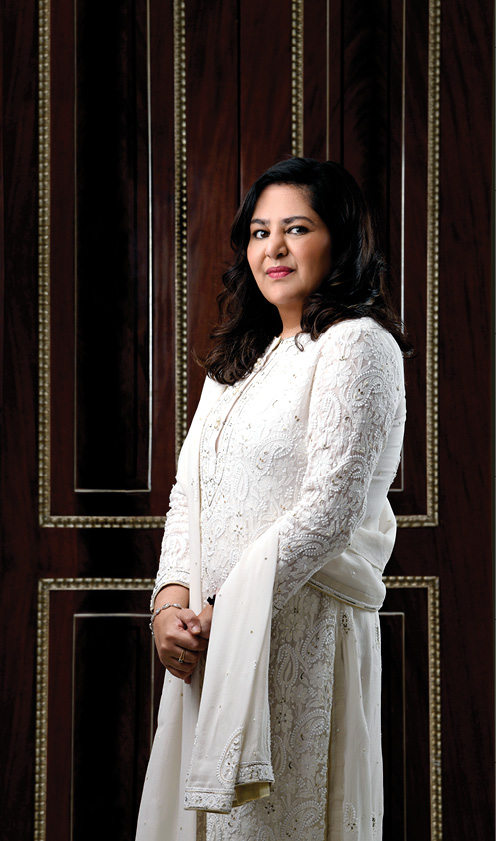Shefali Munjal is Executive Director of Hero Enterprise. She speaks to Guardian 20 about her career, philanthropy and hosting Serendipity Arts Festival, a social project.
Q. How did you imbibe values related to a healthy work culture in your life?
A. We learn through emulation. I have grown up watching the routines of my late grandfather Brij Mohan Lal Munjal and my father Sunil Kant, and have always admired their passion, selflessness and commitment. So working to make a difference, rather than working in expectation of a reward, is something I hope I have imbibed.
Q. Tell us about building Hero Group’s insurance distribution successfully.
A. When we entered this business in 2005, the technology revolution was nowhere as pervasive as it is today. So, we invested in technology, did process engineering and developed a business delivery model that dramatically reduced the processing time for issuing insurance policy. Cutting paperwork made both insurance companies and customers gravitate towards us.
I designed and set up a strong and robust back end to provide a seamless experience to our nationwide distribution network of contacts. Over the years, my team developed strong relations with our business partners by trying to understand their business needs accurately. We also invested heavily in training at the front end to ensure positive customer outcomes. These are some of the factors that contributed to our success.
Q. You are involved with a lot of philanthropic work of Hero Enterprise. What all does it entail?
A. Through the family office of Hero Enterprise, we have supported startups that focus on development and entrepreneurship at the grassroots, especially in areas such as digital learning, community transportation, healthcare, women empowerment and children’s education. I am also involved in a charity that focuses on feeding people through annual events around the slums of the Delhi.
I am also a founding patron of the Serendipity Arts Foundation; this is a unique social project that aims to revive patronage in arts and culture around the country. Our mandate is to cut across disciplines, regions, demographics and find ways to support the arts ecosystem and in the process, bring national and international attention back to Indian arts and culture. We support artistes and artisans in different ways.
Q. What is the idea behind the annual Serendipity Arts Festival that you host in Goa?
A. Every year, the Serendipity Arts Foundation holds the Serendipity Arts Festival in Panaji, Goa between the second and third week of December; this year, the fourth edition gets underway. The multiple projects support not just younger artists but also showcase senior artists who are able to raise the bar for the younger generation. Footfalls have increased from 150,000 in the first year to more than 450,000 in the third year. Between 2016 and 2018, we have brought together more than 2000 artists and artisans, and in 2018, festival events were held across 11 venues, in addition to shows at residences, bus stands and municipal markets.
This festival celebrates the interdisciplinarity between various art forms, including visual, performing and culinary. It has shown how different forms of art can grow and thrive beyond silos. It has displayed art’s ability to generate appeal and interest amongst a wider audience, beyond the elite. With each passing year, we have increased the scale of the festival. The first edition had 53 projects; last year, there were 93. This year we will have more than 100.
Q. You are a successful woman who has achieved work-life balance. What advice do you have for the younger generation?
A. For the next generation, I would like to stress the importance of acquiring relevant skills and staying focussed. Today’s world allows youngsters to experiment and make mistakes; this is important, as it leads to self-discovery. Yet it is also very easy to get distracted; thus, purpose and discipline is vital. Youngsters should have the ability to distinguish between dreams and execution of dreams. Skills are only honed through practice, not mindless experimentation, and continuous dreaming. The basics of becoming successful are the same today as they were 50 years ago.

